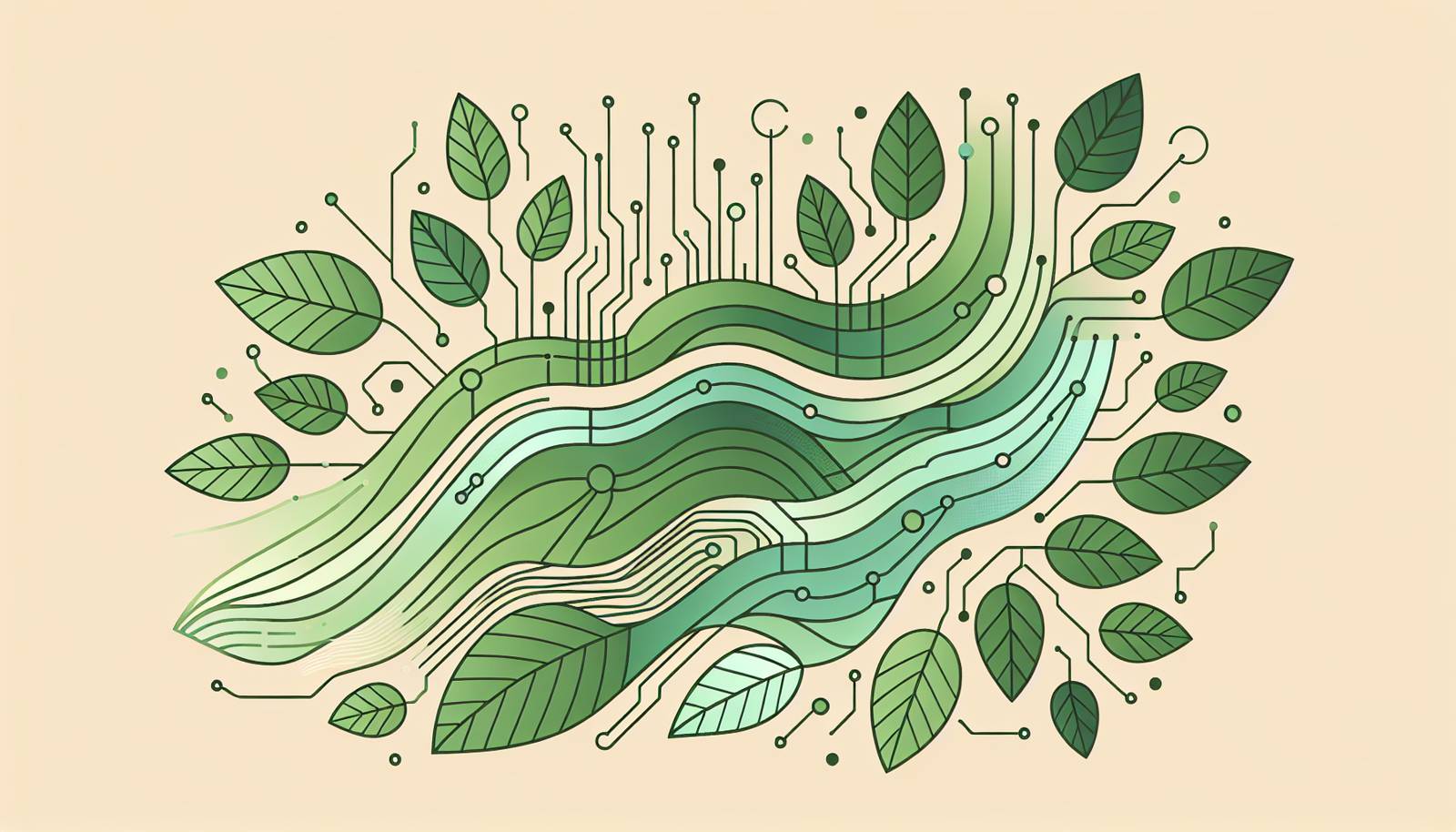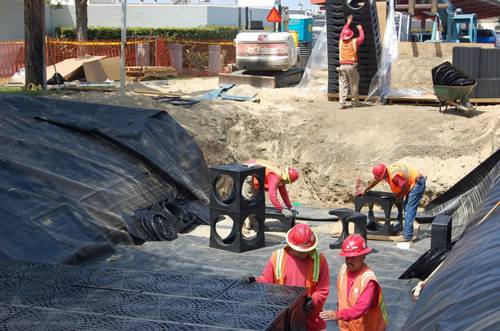
FAQ About Indoor Plant Smart Irrigation Systems

What are indoor plant smart irrigation systems?
Indoor plant smart irrigation systems are advanced watering solutions that use technology to automate and optimize the watering of indoor plants. These systems monitor environmental conditions such as soil moisture, temperature, and humidity, and adjust the water supply accordingly to ensure that plants receive the precise amount of water they need.

How do smart irrigation systems for indoor plants work?
These systems typically involve sensors placed in the soil and connected to a smart hub. The sensors collect real-time data on the soil's moisture level, which is sent to a control unit. This unit uses algorithms to determine when and how much water the plants need, activating a connected watering device to deliver the optimal amount of water.

Can smart irrigation systems save water?
Yes, smart irrigation systems can significantly save water by ensuring that plants are only watered when necessary. By using sensors to detect moisture levels, these systems prevent over-watering, which is common with manual watering practices, thus conserving water and reducing waste.

Are smart irrigation systems suitable for all types of indoor plants?
Smart irrigation systems can be used for a wide variety of indoor plants. However, it's important to select a system that can accommodate the specific needs of your plants. Some plants have unique watering requirements, so you should ensure the system's settings can be adjusted to fit your plant's particular needs.

What features should I look for in a smart irrigation system for indoor plants?
When choosing a smart irrigation system, look for features such as adjustable watering schedules, soil moisture and humidity sensors, compatibility with smart home devices, ease of installation, and a user-friendly app interface. Additional features like weather predictions can offer further assistance in optimizing watering schedules.

How do I install a smart irrigation system for my indoor plants?
Installation typically involves placing sensors in the soil near your plants, connecting these sensors to a smart hub, and setting up an irrigation device like a drip system. Most systems come with detailed instructions, and many offer customer support or online resources to help with setup.

Will a smart irrigation system work with my existing pots and planters?
In most cases, smart irrigation systems can be adapted to work with existing pots and planters. The key is ensuring that the sensors and watering system can be properly installed in the space provided. You may need to make adjustments or choose specific components that fit your setup.

Do smart irrigation systems require Wi-Fi?
Most smart irrigation systems require Wi-Fi to enable remote monitoring and control via a smartphone app. Some systems may operate solely using Bluetooth or other wireless technologies, but having a consistent Wi-Fi connection allows for greater functionality and real-time updates.

How do I maintain a smart irrigation system?
Maintenance of a smart irrigation system typically involves periodic checks to ensure sensors and watering devices are functioning correctly, replacing batteries as needed, and cleaning equipment to remove any dirt or debris that may affect performance. Regular updates to software or apps should also be ensured to maintain optimal operation.

Can I control a smart irrigation system remotely?
Yes, most smart irrigation systems allow users to control and monitor them remotely using a smartphone or tablet app. This feature enables you to adjust watering schedules, receive alerts, and make changes based on environmental conditions or plant needs, regardless of your location.

Are smart irrigation systems energy-efficient?
Smart irrigation systems are generally energy-efficient as they use minimal electricity and function mainly through low-power sensors and controllers. They also contribute to energy savings by ensuring plants remain healthy, thus reducing the need for resources like lighting and climate control necessary to revive stressed plants.

What is the price range for indoor plant smart irrigation systems?
The price for indoor plant smart irrigation systems varies based on features and the number of components included. Basic setups can start around $30 to $50, while more sophisticated systems with advanced features could range from $100 to $200 or more.

Do smart irrigation systems need professional installation?
Most smart irrigation systems are designed for easy DIY installation, so professional installation is typically not necessary. Detailed instructions are usually provided, and online tutorials or customer service can offer additional guidance if needed.

What are the benefits of using smart irrigation for indoor plants?
Smart irrigation systems offer numerous benefits, including water conservation, optimized plant health, reduced manual labor, remote monitoring, and the ability to easily adapt to plant and environmental changes. They can help ensure your plants are watered correctly even if you're not home.

Can smart irrigation systems integrate with other smart home devices?
Many smart irrigation systems are compatible with popular smart home platforms like Amazon Alexa, Google Home, or Apple HomeKit, allowing them to be integrated into existing smart home ecosystems. This integration provides users with greater convenience and control over their indoor plant care.

How does a smart irrigation system help improve plant health?
By providing precise watering tailored to the specific needs of plants, smart irrigation systems can significantly improve plant health. They prevent under or over-watering and can make adjustments based on real-time environmental data, ensuring the plants have optimal growing conditions.

Can smart irrigation systems be used in a greenhouse setting?
Yes, smart irrigation systems can be effectively used in greenhouse settings where environmental control is crucial. These systems can handle the meticulous watering needed in a greenhouse and integrate with other climate control technologies to further enhance plant growth conditions.

Do smart irrigation systems offer analytics or data tracking?
Some advanced smart irrigation systems offer analytics and data tracking capabilities. These features allow users to view historical data on watering schedules, soil moisture levels, and plant health indices, aiding in the optimization and customization of the plant care process.

What limitations do smart irrigation systems have?
While smart irrigation systems offer many advantages, they also have limitations. They depend on reliable internet connectivity, may require manual adjustments for certain plant types, and initial setup costs can be high. Additionally, the technology relies on sensors that may need periodic maintenance or replacement.
